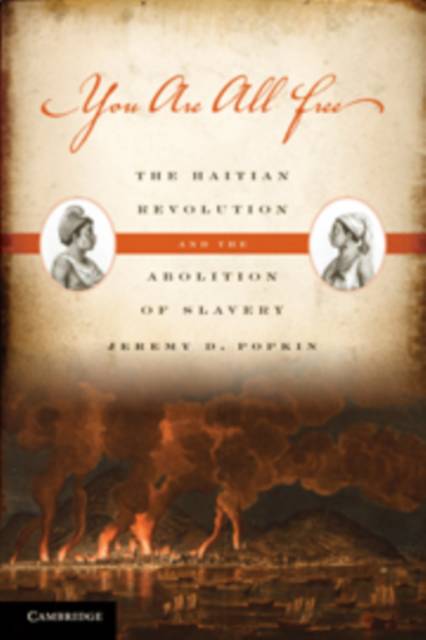
- Afhalen na 1 uur in een winkel met voorraad
- Gratis thuislevering in België vanaf € 30
- Ruim aanbod met 7 miljoen producten
- Afhalen na 1 uur in een winkel met voorraad
- Gratis thuislevering in België vanaf € 30
- Ruim aanbod met 7 miljoen producten
Zoeken
You Are All Free
The Haitian Revolution and the Abolition of Slavery
Jeremy Popkin
Paperback | Engels
€ 48,95
+ 97 punten
Omschrijving
The abolitions of slavery in the French Caribbean colony of Saint-Domingue in 1793 and in revolutionary France in 1794 were the first dramatic blows against an institution that had shaped the Atlantic world for three centuries and affected the lives of millions of people. Based on extensive archival research, You Are All Free provides the first complete account of the dramatic events that led to these epochal decrees, and also to the destruction of Cap Francais, the richest city in the French Caribbean, and to the first refugee crisis in the United States. Taking issue with earlier accounts that claim that Saint-Domingue's slaves freed themselves, or that French revolutionaries abolished slavery as part of a general campaign for universal human rights, the book shows that abolition was the result of complex and often paradoxical political struggles on both sides of the Atlantic that have frequently been misunderstood by earlier scholars.
Specificaties
Betrokkenen
- Auteur(s):
- Uitgeverij:
Inhoud
- Aantal bladzijden:
- 436
- Taal:
- Engels
Eigenschappen
- Productcode (EAN):
- 9780521731942
- Verschijningsdatum:
- 30/08/2010
- Uitvoering:
- Paperback
- Formaat:
- Trade paperback (VS)
- Afmetingen:
- 155 mm x 227 mm
- Gewicht:
- 585 g

Alleen bij Standaard Boekhandel
+ 97 punten op je klantenkaart van Standaard Boekhandel
Beoordelingen
We publiceren alleen reviews die voldoen aan de voorwaarden voor reviews. Bekijk onze voorwaarden voor reviews.











